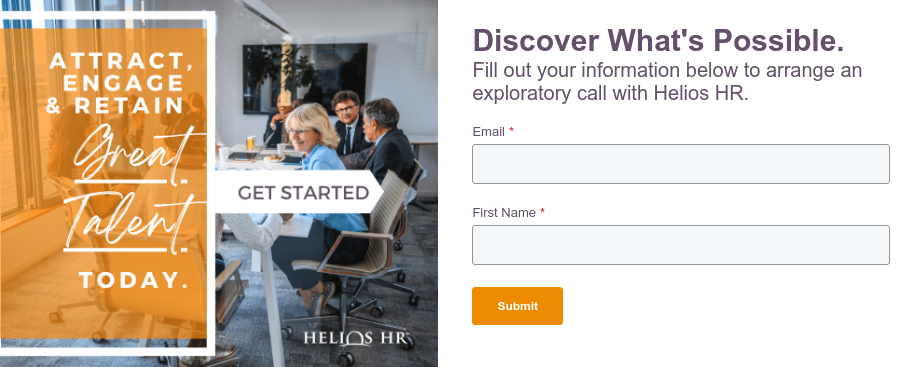By: Ber Leary on July 21st, 2025
Artificial Intelligence & Hiring: A Way to Reduce Bias?
Artificial Intelligence is the hottest technology in the world right now, with huge implications for every aspect of life--including the way we hire.
AI is beginning to appear in popular HR software like Applicant Tracking Systems (ATS), with the promise of faster, better, more accurate hiring results. An AI can screen thousands of resumes per second, while AI chatbots can answer candidate questions and even conduct screening interviews.
But will automated recruitment help eliminate discrimination? Or might it lead to new hazards?
How Artificial Intelligence can transform your recruitment process
Think back to your last major hiring decision. How confident were you that every qualified candidate received fair consideration? The uncomfortable truth is that human recruiters, regardless of their intentions, often bring unconscious biases to every hiring decision. Research shows that 68% of recruiters believe AI will remove unintentional bias from recruitment processes. And they're onto something significant.
Artificial intelligence hiring isn't just about speed and efficiency anymore. Smart organizations are discovering that when properly implemented, AI tools can actually create more equitable, diverse hiring outcomes than traditional human-led processes. Companies using AI-powered recruitment tools are seeing a 20% increase in hiring of underrepresented candidates, while AI tools promise up to 40% bias reduction in hiring decisions.
The key isn't replacing human judgment—it's augmenting it with objective data and systematic processes that minimize the impact of unconscious bias.
Can AI be less biased than humans?
Here's where things get interesting. Traditional hiring relies heavily on gut feelings, first impressions, and pattern recognition, which often work against promoting diversity. Human brains are wired to favor people who look, sound, and think like us. DEI strategies can help to highlight such issues, but it's hard to create a truly unbiased hiring environment.
AI systems, when designed thoughtfully, can sidestep many of these cognitive shortcuts. Unlike humans, algorithms don't have "off days" where they're more likely to make snap judgments. They don't unconsciously favor candidates who attended the same university or share similar hobbies.
Research from leading universities shows that AI techniques like vector space correction and data augmentation can effectively mitigate algorithmic bias in hiring. The secret lies in how these systems are trained and monitored.
The data advantage matters tremendously. While a human recruiter might review 50-100 resumes before mental fatigue sets in, AI can analyze thousands of applications with consistent criteria. This broader analysis often reveals qualified candidates who might otherwise be overlooked in traditional screening processes.
More importantly, AI systems can be audited and adjusted when bias is detected. Organizations that employed human oversight along with AI experienced a 45% reduction in biased decisions compared to those that relied solely on human judgment.
5 strategies for bias-free artificial intelligence hiring
Success with AI hiring isn't automatic—it requires intentional design and ongoing vigilance. Here are the approaches that consistently deliver fairer outcomes:
1. Start with diverse, high-quality training data
Your AI is only as unbiased as the data you feed it. This means going beyond your company's historical hiring patterns (which likely contain embedded bias) to create more representative datasets.
Studies show that training with datasets containing at least 40% representation from marginalized groups reduced bias by 31%. Consider augmenting your training data with synthetic profiles or industry benchmarks that reflect your diversity goals.
Actionable step: Audit your current employee data for demographic representation. If certain groups are underrepresented, supplement your training data with external sources or synthetic examples.
2. Implement blind recruitment
Remove identifying information that could trigger unconscious bias. Names, photos, graduation years, and even certain demographic indicators should be stripped from initial AI screening.
Companies using blind recruitment techniques saw a 32% increase in hiring diversity, according to recent analysis. The AI focuses purely on skills, experience, and job-relevant qualifications.
Actionable step: Configure your AI tools to anonymize candidate information during initial screening phases. Only reveal identifying details after initial qualification assessments are complete.
3. Establish continuous monitoring and auditing
Set up regular bias audits using the "four-fifths rule", which is that you should perform an audit if any demographic group is selected at rates 80% or lower than the highest-performing group. This is an area that requires human oversight and regular reviews.
Research shows that 77% of companies have bias-testing tools in place, but many still find bias in their systems because they're not monitoring frequently enough.
Actionable step: Create dashboard alerts that flag when selection rates vary significantly by demographic group. Review these metrics with your recruitment team monthly.
4. Combine AI insights with human oversight
Never let AI make final hiring decisions alone. Instead, use it to surface qualified candidates that human reviewers might miss. The most successful approach treats AI as an intelligent assistant, not a replacement for human judgment.
This hybrid approach works. Organizations combining AI tools with human oversight achieve both better diversity outcomes and higher quality hires.
Actionable step: Train your recruitment team to interpret AI recommendations critically. Establish clear protocols for when human reviewers should override AI suggestions.
5. Focus on predictive factors that matter
Train your AI to focus on performance indicators that directly related to job success. This might include problem-solving assessments, relevant project experience, or skills demonstrations.
Companies like Unilever have implemented AI-driven processes using tools like Pymetrics and HireVue that assess cognitive abilities and behavioral traits through gamified tests, moving beyond resume parsing to deeper capability assessment.
Actionable step: Work with your AI vendor to identify which data points in your system actually correlate with employee success. Remove or de-weight factors that don't predict performance.
Real-world success stories: Companies getting artificial intelligence hiring right
Smart organizations are already seeing remarkable results from thoughtful AI implementation:
Hilton's transformation stands out as particularly impressive. The hotel chain reduced time to fill positions by 90% using AI while simultaneously improving diversity outcomes. They use tools like Datapeople to remove potential bias from job descriptions, and 93% of users said the tool simplified the process for writing inclusive job postings.
Box takes a comprehensive approach by using AI to create job descriptions from meeting notes, analyze those descriptions for biased language, and then summarize interview feedback in an objective format. This end-to-end process helps minimize bias at every stage.
Textio represents the preventative approach. Their AI analyzes job descriptions and internal communications for biased language, helping organizations create more inclusive content before candidates even apply.
These aren't isolated success stories. A comprehensive analysis found that 82% of executives believe AI will have a significant impact on creating more diverse and inclusive workforces.
Ready to build a more equitable hiring process?
Artificial intelligence hiring offers genuine opportunities to create fairer, more effective recruitment processes. But success requires thoughtful implementation, ongoing monitoring, and a commitment to continuous improvement.
At Helios HR, we help organizations implement AI hiring strategies that deliver both efficiency gains and better diversity outcomes. Our expertise includes:
- AI consultation and training
- Recruitment process outsourcing
- Team training and change management
- Diversity and inclusion strategy integration
- Compliance and risk assessment
Book a call with a Helios HR consultant to discover how artificial intelligence hiring can transform your recruitment process while advancing your diversity and inclusion goals.




